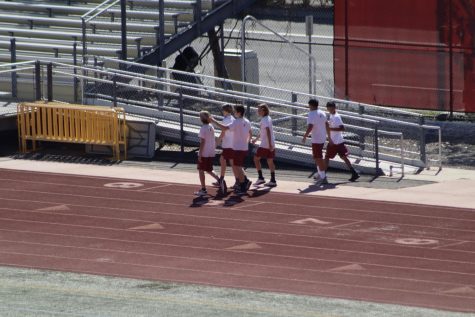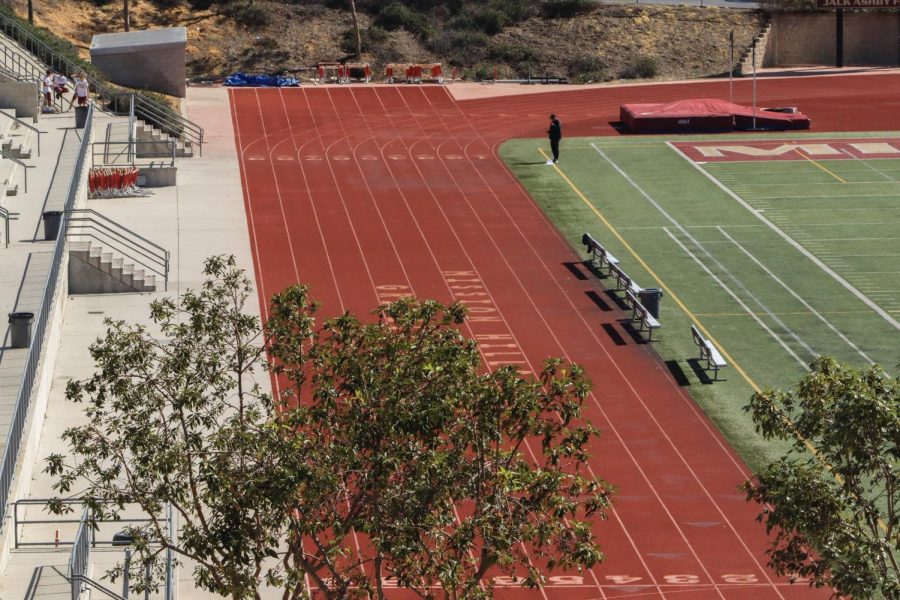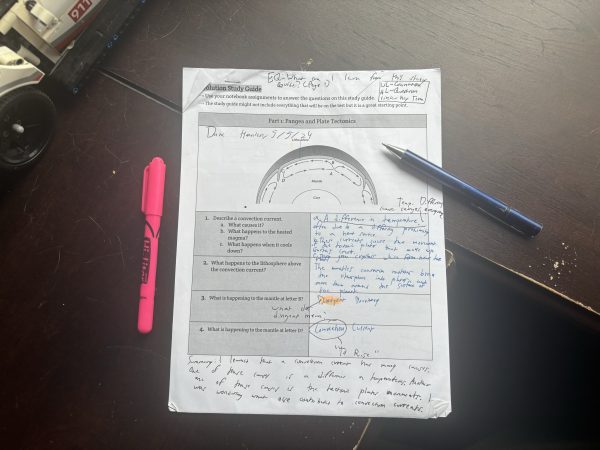Is the mile grading system in General P.E. fair?
Students and staff discuss thoughts on the mile requirements in general P.E.
Photo by Ryan Jenkins
Those in general P.E. are familiar with the practice of running the mile for a grade.
In General P.E. at Mission Hills, one of the most important assessments is the mile, typically run every two weeks or so. After finishing the run, you get a grade based on your elapsed time, a 100 percent score varying from 7:30 to 8:30. Unfortunately, many believe that this system is not optimal for including all kids and encouraging physical fitness.
“It’s graded on your time rather than your effort. I’m trying to get straight A’s, but the only class I’m struggling in is P.E. because of how the mile is graded. I think they could definitely grade it on how much you tried rather than what your performance is because they’re already observing us whilst we run,” freshman Sam Chanthabouasy said.
Many things make it unfair, such as the fact that the time requirement for an A grade is above the average for children, and even adults. In addition, if students cannot perform to standard when trying their hardest and earn a 60 or 70 percent, they will not be motivated to improve; one might think getting an A is impossible if they feel they exerted their best effort and still received an insufficient score.

“Even if you run fast, it could still not be good because of the way it’s graded. I would understand that some people can’t run sometimes; maybe they have a migraine, or sometimes the weather needs to be taken into consideration. It (the grading system) needs to be more [lenient],” sophomore Alexa Davila said.
Whether it be a factor that affects just one student, such as injury, or one affecting a group, like weather, it is extremely difficult for coaches, supervisors, and even the district to account for all issues. However, changing the way the mile is graded may be a step in the right direction if it is successfully implemented. Oftentimes, some students can not make the time due to a physiological problem or condition that is not taken into account.
“In P.E., I’m having a tough time keeping up. I have a heart condition and I usually have a very hard time breathing after doing some running. I’m not sure how the grading system should be improved, but I think it would help if the coaches focused less on time,” freshman Sam Grau said.
I think they could definitely grade it on how much you tried rather than what your performance is because they’re already observing us whilst we run.
— Sam Chanthabouasy
Even small changes such as modifying the time that is required in order to receive a good grade or raising students’ scores if they worked hard can contribute positively towards crafting a fair and accommodative mile. For now, though, advocating for those dealt unfair cards in the mile is a great priority to focus on.
For more student voices regarding the Mission Hills P.E. program, view “Mission Hills staff shares thoughts on inclusivity of minorities in P.E. classes,” “Discrimination against LGBTQ+ kids in P.E. class causes them to dread the period,” and “Do people feel Title IX has done what it was supposed to?”.

(Any/all) Daniel Ashlock is a sophomore working in the Silvertip for a second year. Daniel believes that publishing news and spreading awareness in ONE...

(He/him) Ryan Jenkins is a freshman at Mission Hills and this is his first year as a member of the Silvertip. He likes to experience knew things edit and...












Sam • Feb 24, 2023 at 11:39 am
I’m in this article! Great job on it 🙂